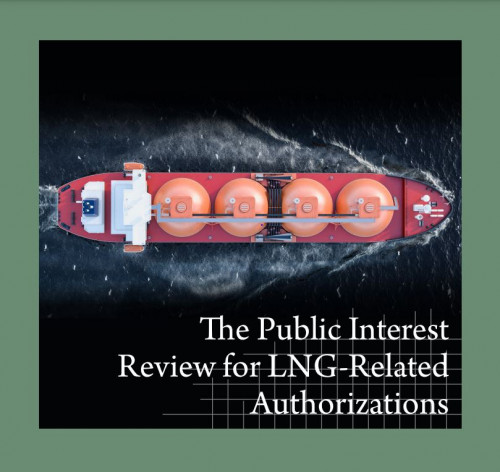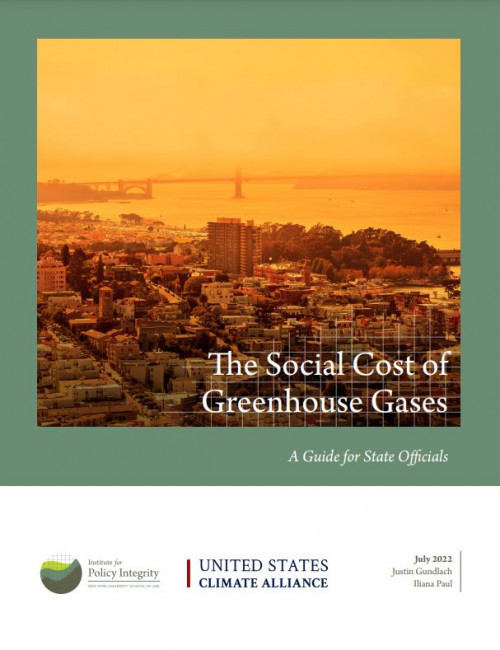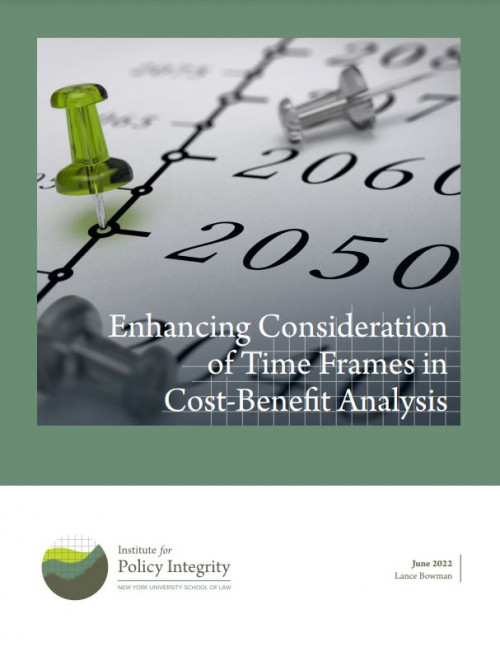The Institute for Policy Integrity produces a variety of publications. Our research reports develop in-depth research on our core issues, while our policy briefs and issue briefs provide focused analysis on more timely or particular topics. Our academic articles and working papers offer original scholarly research and analysis from established experts as well as fresh new voices.
Latest Publications
-
The Public Interest Review for LNG-Related Authorizations
After a meteoric rise in production over the past decade, the United States has become the largest exporter of liquefied natural gas (LNG) in the world. Yet, the analysis behind LNG terminal and export approvals overlooks climate and environmental justice impacts, despite promises of imminent reform. Policy Integrity’s new report provides a comprehensive look at the Department of Energy’s (DOE) and the Federal Energy Regulatory Commission’s (FERC) past practice in this space and offers recommendations for improving their review of the climate and environmental justice impacts of LNG approvals.
-
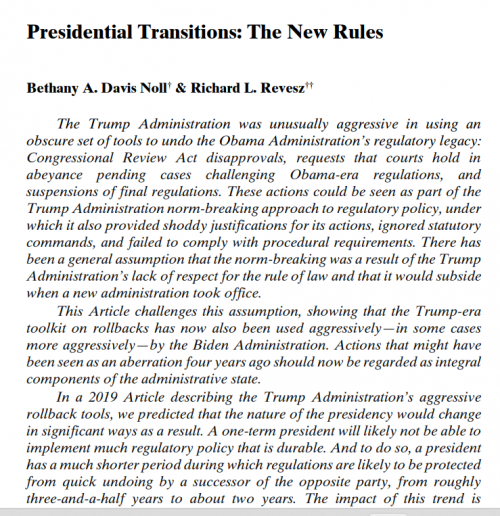
Presidential Transitions: The New Rules
Published in Yale Journal on Regulation
There has been a general assumption that the norm-breaking was a result of the Trump Administration’s lack of respect for the rule of law and that it would subside when a new administration took office. This article challenges this assumption, showing that the Trump-era toolkit on rollbacks has now also been used aggressively—in some cases more aggressively—by the Biden Administration. Actions that might have been seen as an aberration four years ago should now be regarded as integral components of the administrative state.
-
The Social Cost of Greenhouse Gases: A Guide for State Officials
As states step up on climate action, they need a way to weigh climate goals against other policy objectives. The social cost of greenhouse gases (SC-GHG) can help policymakers understand the costs and benefits of climate action and inaction. This new guide for state officials explains why the SC-GHG is a useful policy tool and how it can be applied.
-
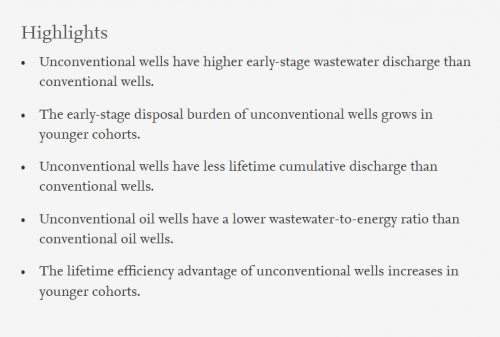
Does Unconventional Energy Extraction Generate More Wastewater? A Lifetime Perspective
Published in Ecological Economics
The paper analyzes how wastewater generation patterns differ between unconventional wells and conventional wells, accounting for differences in well configurations and local geology. Using the 2008–2016 monthly production data from 50,039 wells, the authors show that unconventional wells generated more wastewater in the first 12 months of production but less cumulative discharge than conventional wells. Unconventional oil wells had a lower wastewater-to-energy ratio throughout their lifetime than their conventional counterparts, whereas no efficiency gap existed among gas wells. These findings call for targeted strategies to balance the short-term disposal burden and the long-term efficiency gains of unconventional energy extraction.
-
Enhancing Consideration of Time Frames in Cost-Benefit Analysis
Federal agencies frequently provide no justification for their analytical time frame when analyzing the costs and benefits of a policy. This is true even when there are costs and benefits that clearly occur beyond the time frame chosen by the agency. In so doing, agencies risk overlooking key long-term impacts that may justify more stringent regulation.
This report argues that the Office of Management and Budget (OMB) should take steps to improve how agencies consider analytical time frames in their cost-benefit analyses.

